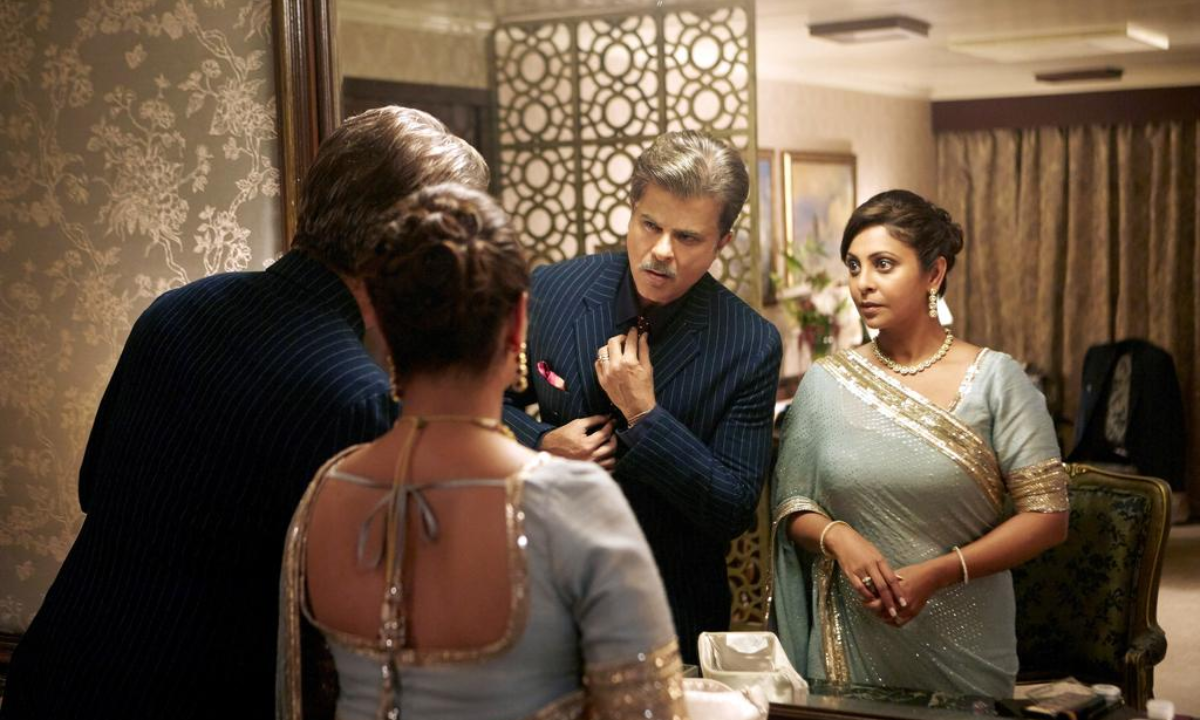Throwback Thursday: Akele Hum Akele Tum Exposed The Misogyny In Marriages And Talked About Ambitious Women

I was four years old when Akele Hum Akele Tum released and of course, I have no memory of watching it then. Also, it’s not the kind of movie a child should be watching at 4. But as I grew up, relying heavily on television for entertainment since we didn’t have OTT platforms, I watched it a couple of times. I was still a kid and honestly, I didn’t understand a lot of it. But I remember what I felt – since it’s our feelings that leave a mark on our memory. I felt a lot of negative emotions, even as a child to see Manisha Koirala’s character suffering and Aamir Khan’s character being immensely insecure. Overall, I just remember a lot of unhappiness in the film. And now, that I revisited it as an adult, I realised there was more to it.
The film comes from a period when women were only seen as mothers and wives, who are supposed to be on top of domestic duties and not have an iota of aspirations. Oh, wait, that does sound like today for a huge chunk of our society. So you can only imagine, how back then even the dialogue around women having a career after marriage was rare. Yet, Akele Hum Akele Tum at least took the baby steps to acknowledge that.
It starts off like a typical love story where the hero and heroine meet. Cute. Okay, it was not so cute. Rohit (Aamir Khan) is performing at a restaurant where Kiran (Manisha Koirala) arrives with her friend, and gorgeousness that she is, Rohit falls for her beauty. At the same time, she is smitten by his voice as she herself is an artist and wants to make it big as a singer. Also, right in the start, Rohit is established as a man who is good with his music but really bad with money, as he is loved by all, even though he owes them a lot of money.
As it goes, the two musically-inclined people fall in love and then Rohit, one fine day, proposes Kiran. She tells him that she never thought of marriage and wants to make a career in music. This scene is really important, as he promises her that if they get married, they can both climb the ladder of success together. And yet, when after they do tie the knot, much against Kiran’s parents’ wishes, Rohit becomes the typical Indian misogynistic guy who thinks it’s a woman’s job to do domestic duties.
You see the change in her attire and demeanour – when she met him, she dressed glamorously and was more confident. Then, she is so overburdened with household work, she barely has time to even practice music, forget trying to make a career in it.
In fact, Rohit never takes her to his recordings and parties, even though she insists that it would help her network and maybe gain her an opportunity. Soon, she gets pregnant and later, is shown raising the child all by herself as Rohit is only focused on his own career. He simply walks around ordering Kiran to ready his bath for him, iron his clothes and yells at her to make his breakfast and take care of the child.
The thing I really liked during this time was that his behaviour wasn’t normalised. It was shown as misogynistic and selfish and he even realises that after she leaves him. He is shown to have learnt a lot of things, as he confesses and says that he was wrong.
Yet, misogyny is so inherent in our culture, we can’t expect men to change overnight. But he definitely is trying his best to grow. Meanwhile, I appreciated that this movie talks about mental health, self-worth and individuality. These terms weren’t defined in the film but it opened a dialogue about how you need to be mentally in sound health to be able to take care of others. Kiran left her child for almost one and a half years but that’s because her mental health had deteriorated and self-worth ripped off by Rohit’s constant taunts. She had to build a career to feel confident again.
Akele Hum Akele Tum also shows how separated couples can impact the mental health of the child. Their fights caused Kiran to abandon the kid first, and then their custody battle was about separating him from his father. Amidst this tug of war, it was the child who suffered the most. It is important that couples keep their differences aside when raising a child, whether together or separated. The child shouldn’t be forced to choose.
Rohit became a better father and a little less misogynistic by the end of the film. But still, there was a lot that was wrong with his behaviour. He gets offended when Kiran helps him out by getting him signed by a big director. It hurts his ego so much to receive help from his wife but it’s okay if random music rights company owner refers him. It was okay when he was supposed to help his wife make a career. His male ego also got hurt when Kiran was able to build a big house and buys several toys for their child. He just couldn’t accept Kiran being more of a provider than him.
ALSO READ: Throwback Thursday: Awful Sexual Misconduct And Violation Of Consent Was Haseena Maan Jaayegi’s Mainstay. Eww
In the end, it’s shown that Kiran returns home to them. We don’t know if she gave up on her career or what. I hope not because otherwise it completely defies the progress she made in this sexist world. But what I don’t understand is that if Kiran was able to buy a big house why couldn’t they move there instead? What’s so wrong with that? It would have been completely okay if it was the other way around.

















